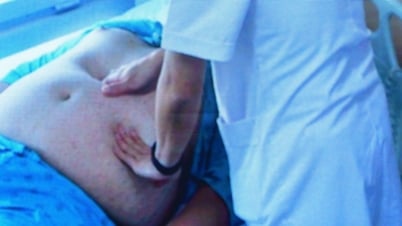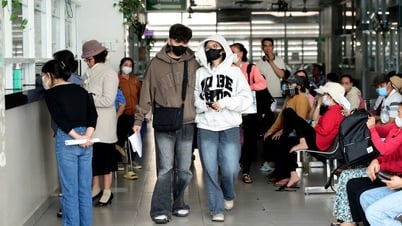Alarmingly, new research published in the biomedical journal Biomarker Research has found that just a few nights of poor sleep increases the risk of heart problems.
The study, led by Uppsala University, in collaboration with Akershus University Hospital and Sahlgrenska University Hospital (Sweden), aimed to find out whether short-term sleep deprivation affects the risk of cardiovascular disease and to find a solution to this problem, according to the medical news site Medical News Today.

Studies have shown that long-term sleep deprivation leads to an increased risk of heart attack, stroke and atrial fibrillation.
Photo: AI
The authors tested 16 healthy, normal-weight young adults. All had healthy sleep habits and were monitored in a sleep lab, with meals and activity levels tightly controlled during the trial:
- First 3 nights: Get enough sleep as usual.
- Next 3 nights: Sleep only 4 hours per night.
At the same time, participants had blood tests done in the morning and evening each day and then performed 30 minutes of high-intensity exercise.
Sleep loss increases levels of inflammatory proteins
Researchers measured the levels of about 90 proteins in the blood, and found that levels of many inflammatory proteins increased with sleep deprivation. Notably, many of these proteins increase the risk of cardiovascular diseases such as heart failure and coronary artery disease.
Several large studies have looked at the link between sleep deprivation and cardiovascular disease risk in older adults who are at high risk of developing these conditions, said lead study author Dr Jonathan Cedernaes, a lecturer at Uppsala University.
Surprisingly, the study found that levels of inflammatory proteins linked to heart disease also increased after just a few nights of sleep deprivation in healthy young adults. This means that the importance of sleep for heart health needs to be emphasized from a young age, Dr. Cedernaes noted.

Exercise can offset the harmful effects of sleep deprivation
Photo: AI
Exercise can offset the harmful effects of sleep deprivation
The results also showed that exercise produced slightly different responses after sleep deprivation. However, several key proteins increased equally regardless of sleep deprivation. Therefore, proteins associated with the benefits of exercise increased even with very little sleep.
Importantly, research also shows that exercise can offset the harmful effects of sleep deprivation, according to Medical News Today.
However, Dr Cedernaes noted that exercise cannot replace the essential functions of sleep. He added: This study will hopefully help develop better guidelines on sleep, exercise and other lifestyle factors to better prevent cardiovascular disease.
Source: https://thanhnien.vn/nghien-cuu-lam-dieu-nay-co-the-bu-dap-tac-hai-cua-thieu-ngu-185250628195032128.htm









































































































Comment (0)